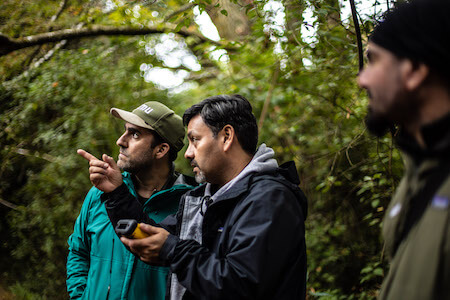 Humans are having a disastrous effect on Planet Earth, and there’s tons of data to prove it.
Humans are having a disastrous effect on Planet Earth, and there’s tons of data to prove it.
Yet despite scary statistics, most conservationists struggle to fund their work, attracting infuriatingly little support. That’s because people aren’t moved by data, they’re moved by stories, says Leo Prieto, a Chilean geek turned nature crusader.
Stories about cotton-top tamarins, perhaps, a tiny monkey whose cheeky face could charm money from a miser. These endangered furballs live in Colombia where deforestation and the illegal pet trade has slashed their numbers to 7,000.
Or stories about black and white rhinos being protected from poachers at Sibuya Game Reserve in South Africa. Show me a big-horned, bad-ass black rhino and I’ll show you my wallet.
Prieto’s passion for nature started as a nomadic naval-family kid growing up by the sea. “I was obsessed with what’s under the surface. I’d anchor myself to a rock with my snorkel out, and I was obsessed with all the little animals doing things that go unnoticed.” His teenage years coincided with the internet reaching Chile and he became a web pioneer, launching and selling several start-ups.
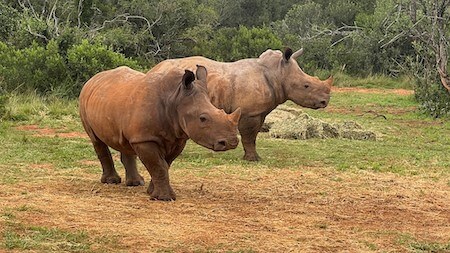 Inevitably his obsessions merged, provoked by a cringing feeling that technology was being wasted. He grins sheepishly as he recalls using ‘amazing artificial intelligence and machine learning’ 13 years ago just to sell advertising. “We’re living at a time when science and technology allow us to do almost anything, and we’re spending all that energy, all those resources, helping people put cat ears on a photo. Really? Why don’t we use all these advancements to solve actual problems? We have real problems and we have real tools – let’s match those two together.”
Inevitably his obsessions merged, provoked by a cringing feeling that technology was being wasted. He grins sheepishly as he recalls using ‘amazing artificial intelligence and machine learning’ 13 years ago just to sell advertising. “We’re living at a time when science and technology allow us to do almost anything, and we’re spending all that energy, all those resources, helping people put cat ears on a photo. Really? Why don’t we use all these advancements to solve actual problems? We have real problems and we have real tools – let’s match those two together.”
The result is Lemu – a native Mapuche word meaning forest - which uses hi-tech tools to tackle “climate change, biodiversity, water, human development, all those things mashed together.”
Prieto dubs Lemu the Airbnb of conservation, matching potential donors with boots-on-the-ground action. It vets each project first to ensure it has verifiable results before loading it on the app. Users can search the app by countries or species, view maps and 3D terrain models, see photos of the land and its species, and read about efforts to protect the ecosystem. You can help save animals you’ve never even heard of, and a monthly or one-time donation brings you updates and impact reports, a certificate, and ‘Planet Earth’s gratitude for making a difference.’ The project receives 80% of each donation, Lemu keeps 19% to cover its costs, and 1% goes to the global network 1% for the Planet.
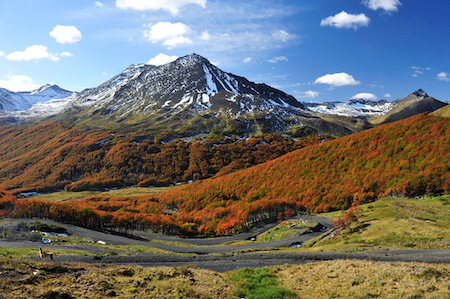 Lemu’s app went live in March 2023 and has raised about $10,000 to date. Not insignificant, since start-ups take time to gain traction. One of the first projects to join was Chile’s Cascada de las Animas in Cajón del Maipo. So far 72 supporters have donated $1,391 towards rewilding and bringing back guanacos, a relative of the llama almost hunted to extinction.
Lemu’s app went live in March 2023 and has raised about $10,000 to date. Not insignificant, since start-ups take time to gain traction. One of the first projects to join was Chile’s Cascada de las Animas in Cajón del Maipo. So far 72 supporters have donated $1,391 towards rewilding and bringing back guanacos, a relative of the llama almost hunted to extinction.
The geek inside Prieto glows as he talks of 3D modelling, machine learning algorithms to scan thousands of scientific papers, remote sensing and computer vision. Lemu gets many of its images from NASA and European Space Agency satellites, but their coverage of the global south is limited. In 2024 Lemu will launch its own satellite to capture high-resolution photos and to use hyperspectral imagery, which can differentiate so many colours on the light spectrum that it can identify individual species of plants or animals by their colour patterns.
In more down-to-earth projects, the team also conducts DNA tests on soil to discover which species are living in an area. Put everything together, and this high-tech toolkit can determine if conservation efforts are effective.
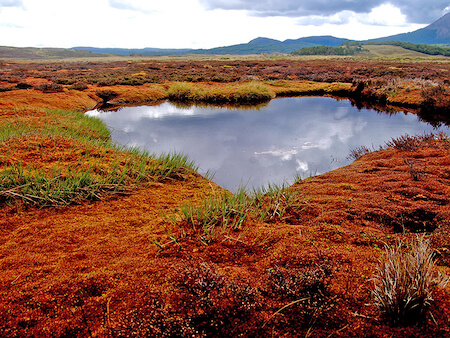 Lemu’s chief science officer Dr. Stephan Funk flags an alarming lack of evidence-based practices, saying most projects rely on anecdotal evidence rather than scientific fact. Evidence-based management takes tools and tech-savvy skills that many organisations lack, resulting in poor decisions, an inability to track and replicate the progress, and problems convincing sponsors.
Lemu’s chief science officer Dr. Stephan Funk flags an alarming lack of evidence-based practices, saying most projects rely on anecdotal evidence rather than scientific fact. Evidence-based management takes tools and tech-savvy skills that many organisations lack, resulting in poor decisions, an inability to track and replicate the progress, and problems convincing sponsors.
Prieto goes further, saying nine out of 10 projects have no means to verify if their efforts achieve the expected outcome. “So we have all these projects doing all these different actions and we don’t know if they work. That’s dramatic. To have a lasting impact we need to have quantifiable, traceable, auditable metrics behind what’s happening.”
That’s where Lemu comes in again. Its LemuIndex algorithm evaluates each ecosystem for its biodiversity, carbon storage footprint, soil quality and water flow. By using AI to monitor those aspects, the impact of climate change and efforts to reverse it are accurately documented. Which brings us back to the stories, because data can prove that the efforts are working, but it’s the stories that sell.
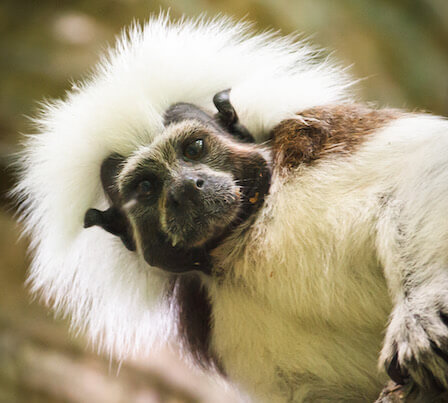 With the cotton-top tamarinds, Proyecto Tití is working with local communities to restore the forest, replant tree saplings on land ravaged by cattle ranching, and to monitor the monkeys using telemetry to understand their behaviour.
With the cotton-top tamarinds, Proyecto Tití is working with local communities to restore the forest, replant tree saplings on land ravaged by cattle ranching, and to monitor the monkeys using telemetry to understand their behaviour.
At Sibuya, users can support the recovery of a rhino calf orphaned when her mother and aunt were slaughtered. Ruthless syndicates poaching the horns saw South Africa lose 231 rhino in the first six months of 2023. To fight this war, Sibuya’s owner Nick Fox must expand and equip his anti-poaching unit with better weapons, more body armour, night-vision equipment and a thermal sensing drone to pinpoint intruders. So far only six users have pledged donations, but Fox is optimistic. “Lemu has this really interesting concept of how to raise funds for worthwhile, non-profit conservation organisations and offered us a placing on their platform,” he says.
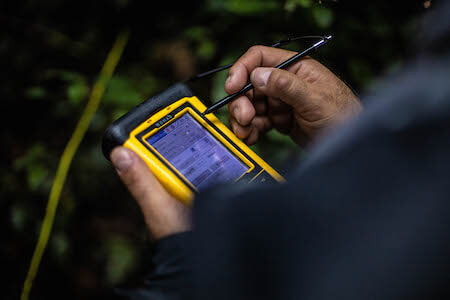 As word spreads, organisations are queuing to join the 50-plus projects in 23 countries, and 100 are in the verification funnel. Global recognition is also growing. Prieto has spoken at two COP conferences, and Funk sits on the board of the Conservation Measures Partnership, a body of NGOs, government agencies, funders, and businesses steering conservation efforts.
As word spreads, organisations are queuing to join the 50-plus projects in 23 countries, and 100 are in the verification funnel. Global recognition is also growing. Prieto has spoken at two COP conferences, and Funk sits on the board of the Conservation Measures Partnership, a body of NGOs, government agencies, funders, and businesses steering conservation efforts.
Lemu will soon begin accepting corporate sponsors, although donors will be scrutinised to deter greenwashing, Prieto promises. “Conservation projects need funding, and some are saying we want everyone at the table, we don’t care if it’s a mining company or an oil company. Others say we don’t want oil or mining money. It needs careful matchmaking.”
Lemu is also expanding scientific knowledge by using AI to examine a biome and predict which species should be there. That detected four types of frog that had never been found before in Chile’s lake district. “Camera traps had never seen them, park rangers had never seen them, but our technology enabled us to say in that part of the forest you’re going to find these frogs,” Prieto grins. “And they were there.”